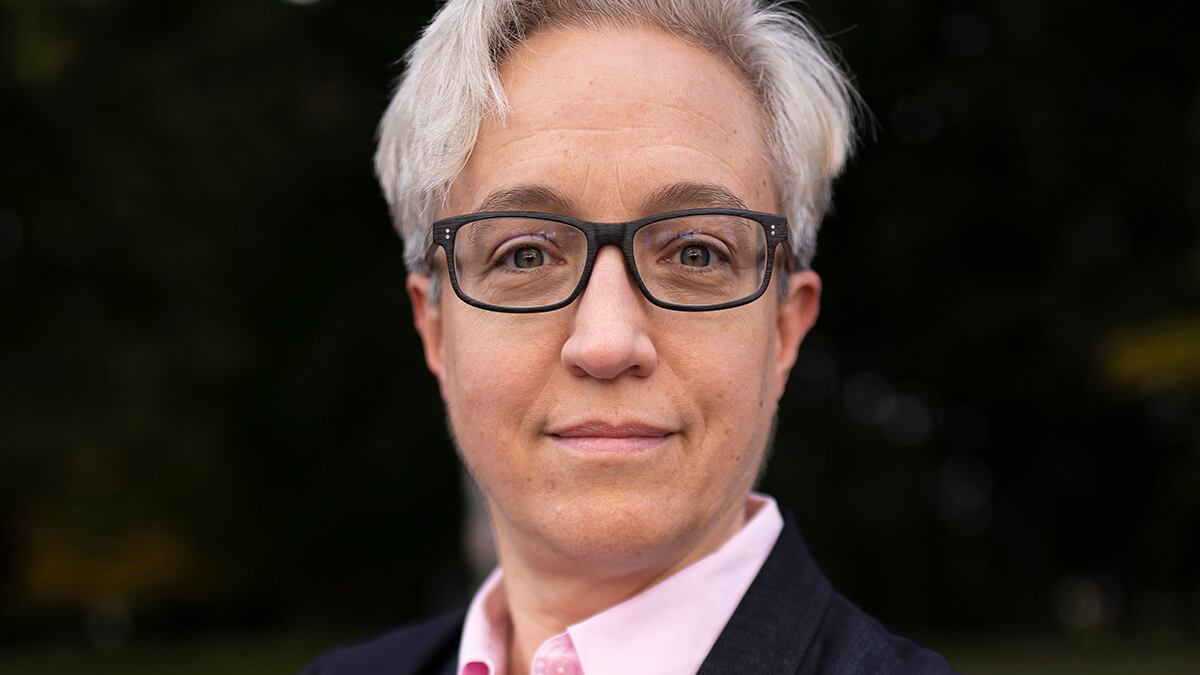Governor
Tina Kotek - Democrat
Sixteen Democrats filed to run for governor this year. One of them wasn’t legally eligible to hold the office. The disqualification of former New York Times columnist Nicholas Kristof created a great legal drama, but it denies Democratic Party voters an alternative to the state’s establishment leaders. Of the remaining candidates, only former House Speaker Tina Kotek (D-Portland) and State Treasurer Tobias Read possess the gravitas and experience to be considered seriously for the nomination.
Kotek, 55, and Read, 46, won their first elections to the Oregon House in 2006 and worked closely together for 10 years before Read ran for treasurer in 2016. Despite their shared history, they are very different. Kotek, the first lesbian House speaker in the U.S., went on to hold the top job in the House longer than anybody in Oregon history.
Kotek is smart, strategic and decisive. She figured out how to pass difficult bills that make working-class Oregonians’ lives better—from a minimum wage increase that acknowledged employers in rural Oregon couldn’t pay as much as ones in Portland, to family medical leave, to an end to no-cause evictions. Under her leadership, Democrats passed a school funding increase they’d been chasing for 30 years. To achieve that goal, Kotek told public employees, her strongest source of support, they’d have to take a haircut. That’s a rebuke to the conventional wisdom that Kotek cannot say no to public employees, who hold a lot of sway with her party. It’s also the mark of an effective leader: reaching difficult compromises for the greater good and having the fortitude to tell supporters unpleasant truths.
Kotek acknowledges Oregon is in tough shape—and few parts of it feel more pain than the blue-collar North Portland district she represented, which is brimming with unsanctioned homeless camps and sees more than its share of gun and traffic deaths. Kotek argues—convincingly—that her job as speaker was to pass laws that create opportunities for positive change. It’s the job of the governor and the state agencies that report to her to implement those laws. We think she can do that better than Read, a moderate, Mister Rogers-style politician. She says she will demand better delivery of basic services, such as mental health treatment, affordable housing, and unemployment benefits that the state has struggled to provide.
Read makes similar claims, but there’s less reason to believe him. As a lawmaker, he earned consistently OK ratings in WW’s “The Good, the Bad and the Awful” issue. As treasurer, he’s been steady and reliable—but no more than that. After changing his position on the sale of Elliott State Forest (against it, for it, then against it again), Read doggedly pursued a complex compromise that will keep the land in public hands. He’s sunny and bright but has never displayed the steely focus that makes Kotek effective.
Kotek’s enemies have already begun portraying her as Gov. Kate Brown 2.0. In terms of style and substance, that characterization could hardly be less accurate. Kotek says she can be governor for all of Oregon, not just progressives in the Willamette Valley. That’s remains a proposition she’ll need to prove. We’d like to see her matched up against the unaffiliated candidate and the best the GOP has to offer.
Of the other candidates in the race, George Carrillo, a former sheriff’s deputy and Department of Human Services manager now working for the Oregon Health Authority, and Dr. Julian Bell, an Ashland pulmonologist focused on climate change, have the most to offer voters.
Moment of joy when Kotek felt life was returning to normal: When people in Columbia Park in her neighborhood began walking closer to each other rather than staying 6 feet apart.
Christine Drazan - Republican

The chances of a Republican being elected to serve as governor of Oregon are usually dim.
But 2022 may be Republicans’ best shot in a generation, and certainly since 2010. The GOP electorate has reason to pick its nominee carefully.
Among the 19 candidates, Sandy Mayor Stan Pulliam, 40, stands out for his shamelessness: He has all the hallmarks of a candidate who will say and do anything to obtain higher office. His chances were diminished by the revelation, explored in these pages, that he and his wife spent time as members of a Portland swingers’ group. To his credit, Pulliam expressed no shame about his swinging, and that may have cost him a key endorsement from Oregon Right to Life. He is otherwise a predictable parrot of Trump Republicanism: fear of crime, fealty to police and, most cynically, demonization of transgender children.
Dr. Bud Pierce, 65, who won his party’s gubernatorial nomination in 2016, has failed to answer our questions or appear for an endorsement interview to focus on his (admittedly important) work as a Salem oncologist. He has the adoration of the many patients he has served, and he is a pleasant if less than magnetic politician. But we wonder how much he actually wants the job. We didn’t get a chance to ask.
The conservative writer Bridget Barton, 69, is perceptive and sound, making a well-reasoned argument for the Republican agenda and sharply diagnosing the state’s current ills. But in a year when voters are looking to challenge the status quo, she is stretching the meaning of the word “outsider.” She tried and failed to get elected to Legislature in the 1990s, but she has built a career, most notably, as a political consultant in a takeover of Clackamas County. The power behind the power is properly called the establishment. She would be an excellent candidate for local office or the Legislature.
Bob Tiernan, 66, a former legislator and GOP state chairman, is making a new run for office after a decade away. He has experience in business and in politics that would serve him well. In the 1990s, he was skilled in navigating the politics of the Capitol, driving his party to the right. His tough-on-crime stance again has an audience, but it’s difficult to imagine him negotiating across the aisle.
Among the Republicans who failed to gain traction with the donor class, the standout is Jessica Gomez, 44, a Medford business owner. We applaud her courage in telling her party the truth about election integrity: A Republican secretary of state’s audit found Oregon’s elections are sound, and to imply otherwise is sour grapes. We hope she’ll find a path to elected office. Nick Hess, 36, owner of local telecom and computer companies, also represents an alternative future for Republicans. He convincingly argues that Republicans in Oregon need to win by seeking compromise. Whether they can do that this year will determine their chances of winning.
That requires choosing the strongest candidate—someone who’s electable in November. That is Christine Drazan.
Drazan, the former House minority leader from Canby, hardly represents Portland values. She’s no RINO: Drazan is pro-life and opposed climate legislation. She also returned a level of savvy and fundraising skills to House Republicans. Drazan served as senior House staff 20 years ago when Republicans ran the Legislature and, unlike many in her party, knows how to exercise power. Last year, she even forced then-House Speaker Tina Kotek (D-Portland) to give the GOP equal say (for a while) in redistricting.
Drazan faces criticism from the right for failing to obstruct every piece of legislation unpopular with conservatives that came before the House. Firearms activists, for instance, blame her for letting Democrats pass a pretty innocuous gun safety bill last year. They wanted her to order her caucus to deny Democrats a quorum and are now blasting her for that. Drazan stuck around, perhaps because she knows walkouts are unpopular with the electorate. She faces down those critiques with equanimity and is sure to offer this state a solid alternative in the general election. Other candidates won’t do that.
May the best woman win in November.
Moment of joy when Drazan felt life was returning to normal: She hasn’t had a distinctive moment of joy yet because normal came too slowly, she says.
Oregon Labor Commissioner
Christina Stephenson - Nonpartisan

The Oregon Bureau of Labor and Industries investigates workplace complaints and promotes apprenticeships and job training. The current labor commissioner, Val Hoyle, is running to fill the open seat of Congressman Peter DeFazio, who is retiring this year.
In the scrum to succeed Hoyle, Christina Stephenson is the clear choice—a candidate with demonstrated effectiveness in the work BOLI does.
Stephenson, 38, a Portland civil rights lawyer, owns a small law firm and has represented workers seeking relief from sexual harassment, wage theft and discrimination. She’s championed workplace reforms, including the addition of paid bereavement leave to the Oregon Family Leave Act, and helped pass the Workplace Fairness Act in 2019, which tightens employers’ requirements for sexual harassment and discrimination protocol.
Stephenson says BOLI imposes too few penalties on scofflaw employers. The Oregon Center for Public Policy reported in January 2021 that only 1% of penalties were collected in substantiated wage theft claims from 2013 to 2019. BOLI, which has an annual budget of $35 million, also has the smallest staff in decades, resulting in a high caseload for investigators.
She’s frank about the industries that she says are getting away with exploiting their laborers—including construction and home health care. Stephenson is a watchdog—just what her agency needs.
She faces intriguing competition, including Casey Kulla, 42, a Yamhill County commissioner and organic farmer. Kulla is intelligent and ebullient. The former cannabis grower is the candidate this election cycle we’d most like to smoke a bowl with. But until a few months ago, he was running for governor, and we’d like to see a little more seasoning and knowledge of the office he seeks in his next campaign.
Former state Rep. Cheri Helt (R-Bend) entered the race on the last possible day. She runs a popular restaurant but doesn’t have a clear rationale for her candidacy.
We recommend you cast your vote for Stephenson.
Moment of joy when Stephenson felt life was returning to normal: Going to Pietro’s Pizza with her son, and winning paper tickets at skeeball to redeem for prizes.

